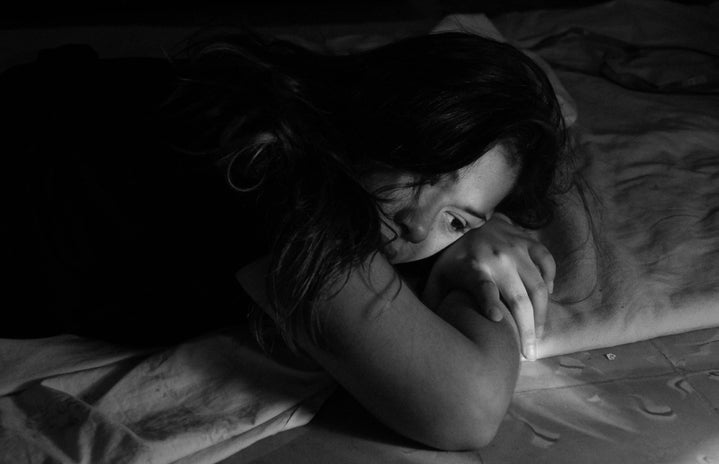The narrative that your university years are the ‘best years of your life’ is an unescapable one. This is a time where you supposedly have the freedoms of an adult without any of the responsibilities. A time where you are able to borrow the money to move out, to live with friends, to go out 24/7 and to come back at whatever time you like, with whoever you like. This is an unescapable narrative even outside of media tropes in books, films, and TV. We see our family members, friends, and social media connections, both enjoying, and reminiscing upon these times, as the very best life ever was, and will ever be. But is it?
Do you find yourself feeling as though the ‘uni experience’ you were promised has been robbed from you? You are not alone and I too have experienced this.
By my second year I found myself attending no lectures, sleeping throughout the day, and waking up at 6pm to buy cigarettes and a chocolate milk at our local corner shop, before traipsing back home to sit smoking and crying. Nothing could seem to fix the rut I had gotten myself into in the previous lockdown era, a rut which continued long after this era had finished. I made little effort socially outside of my immediate friendships, and eventually, slipped into a depression, whereby I submitted no second year work, and if I got out of the house, it was rarely, and mostly only to go out drinking. I found myself conflicted- I saw my more distant friends on social media, living this ‘proper’ university life, with society socials, multiple friend groups, and a passion for their degrees, whilst I felt my university experience had become more akin to that of Normal People’s Connell Waldron’s. At the same time I would rationalise to myself that logically life couldn’t have been better in so many ways, I had found new lifelong friends, and saw my existing best friends frequently. We often had fun plans, and holidays, all of which broke up the depressive cycle that my life had become, so why did I feel like this? And why couldn’t I explain to them what had happened to me?
In reality, I had exhausted myself by pretending to be ok and trying to justify why I was the way I was, without any attempt to fix the underlying problems.
There is no quick fix to feeling like this. Your university experience does not have to be, this glamourised social media image you yearn for. It can be, but for most people, their late teens and early twenties can be one of the hardest periods of life. Many students do not have the financial means to enjoy this ‘uni life’, others, have such demanding courses that they are unable to partake in all of the typical ‘fun’, others, don’t drink or like to go out and feel at a loss, and some do the former too often and end up lost as a result.
For me, it was refusal to accept the changing nature of life and the consequences of my own behaviour. I had gone to university with a mindset that life would automatically be socially booked up, uni work would slot into this life, and I could get away with being the comedic relief character, chasing my life as it ran away from me, just able to hand in work with a schedule that’s all over the place. Obviously, this did not happen, without routine and structure I burnt out- things had been fine before the cogs of life had stopped turning; but as soon as I was for once fully in charge of my life, everything seemed to crumble away. Instead of addressing my problems I continued to press on, burning myself out even more. With the benefit of hindsight I can offer some advice for those who resinate with this feeling. If you have or suspect yourself to be developing a mental health problem- talk about it. To anyone. Whether you choose to confide in friends, family, a GP, or anyone in the University’s services, you will feel better for it. Additionally, know that you can take a break, pause your studies, be that officially, or unofficially for a week. Don’t feel as though you have to compare your experiences with anyone else’s. Some people really do have the time of their lives at uni, but others don’t, and absolutely no one does all of the time. Fill your time with things you enjoy, and try to stick to a schedule. This one I have found particularly difficult. Having undiagnosed ADHD until I was 20, and then working backwards to try to help myself with this, has been a particularly difficult feature of getting myself out of the rut that I was in. But know that there are sources out there, especially if you have a disability, from both the government and the University. Lastly, know that many people feel the same as you do, however it may appear. Losing track of things, even for a few years as I have, does not reflect innately upon who you are, you are as deserving of a degree as much as the next person, and capable of whatever you might want in life, whether that involves University or not. It can get better, and the first step is simply admitting that you need it to.

